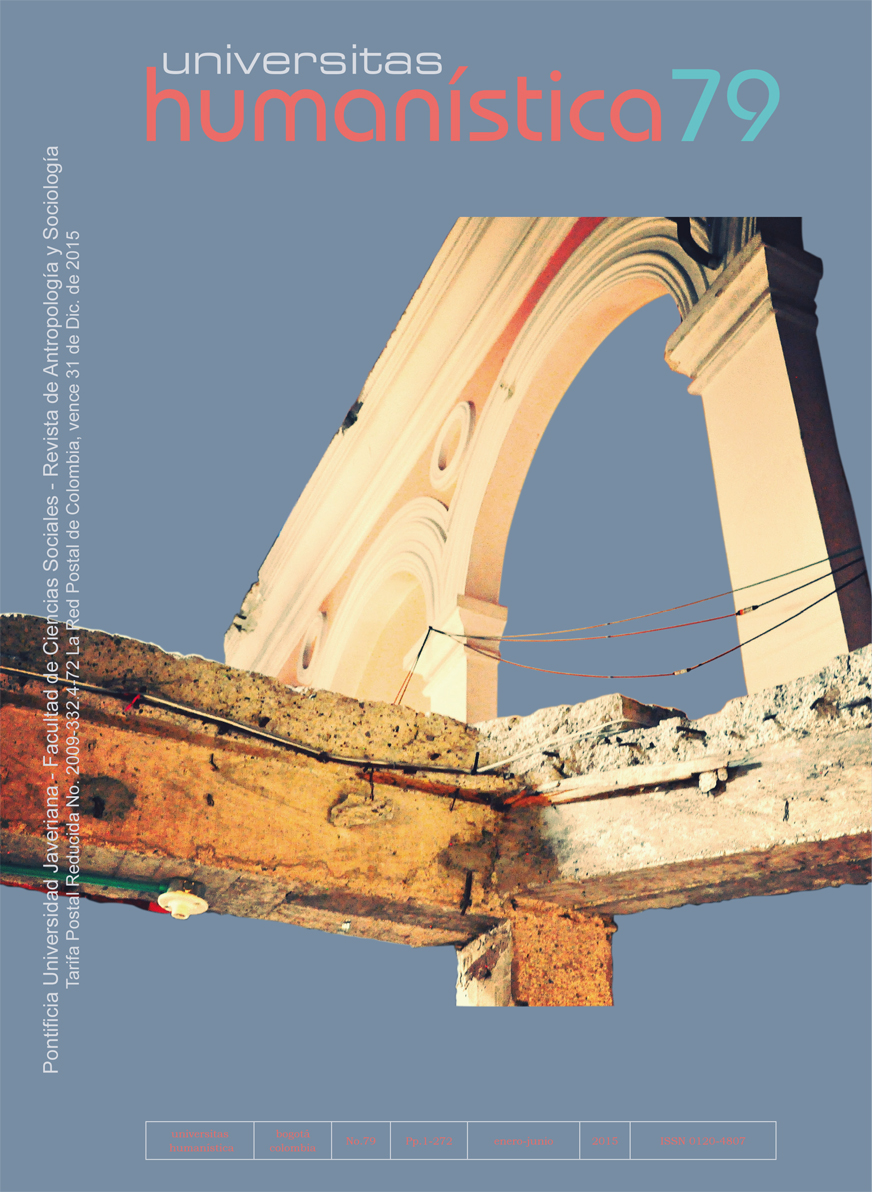Resumo
Desde os estudos sociais de ciência e tecnologia e baseadas no material etnográfico, analisamos o sistema de informação disponível para busca, identificação e entrega de restos mortais no conflito colombiano. Entendemos que neste sistema confluem práticas de memória com o poder de reconfigurar o passado (e o presente) através de processos de seleção e exclusão enquadrados em práticas científicas com carácter de verdade. Reconstruímos a trajetória de produção de informação e identificamos os filtros que operam ao classificá-la e analisá-la sob padrões científicos. Seguimos as trilhas deixadas por essa informação excluída e que tem potencial de ser resgatados. Questionamo-nos pela memória que é construída a partir destes filtros e trilhas. Argumentamos que é fundamental procurar o sistema puder abrir passo à incerteza e contribuir assim na produção de uma memória coletiva do conflito que seja múltipla e matizada.
A revista Universitas Humanística encontra-se registada sob a licencia Creative Commons Versão 4.0 Internacional. Portanto, esta obra pode se reproduzir, distribuir e comunicar publicamente em formato digital, sempre que dado o crédito apropriado para os autores e a Pontificia Universidad Javeriana. Permite-se citar, adaptar, remixar, transformar, autoarquivar, republicar e criar a partir do material, para qualquer fim, mesmo que comercial, sempre que indicado apropriadamente o nome do criador, provido um link para a obra original e indicado se mudanças foram feitas. A Pontificia Universidad Javeriana não retém os direitos sobre as obras publicadas e os conteúdos são responsabilidade exclusiva dos autores, os quais conservam seus direitos morais, intelectuais, de privacidade e publicidade.
O aval sobre a intervenção da obra (revisão, correção, edição, tradução, formatação) e a subsequente difusão disponibiliza-se através de licença de uso e não através de transmissão de direitos, o que representa que a revista e a Pontificia Universidad Javeriana são isentas de qualquer responsabilidade que puder se derivar de uma prática ética pobre por parte dos autores. Em consequência da proteção fornecida pela licença de uso, a revista não fica na obrigação de publicar retratações ou alterar informações já publicadas, a não ser que a errata seja decorrente do processo de gestão editorial. A publicação de conteúdos nesta revista não representa royalties para os contribuintes.


